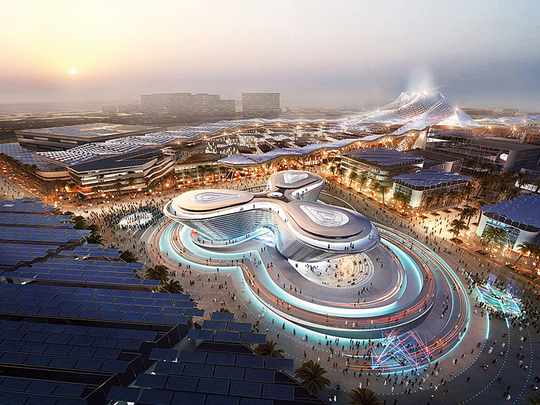
Wage increases in the UAE are expected to be the lowest in a decade this year, as low oil prices continue to cast gloom over the economy, according to a new report. Nevertheless, the country remains one of the most attractive locations to work in the GCC area and the job market keeps expanding. Experts add that Expo 2020 is expected to provide a much-needed boost to the employment sector.
Wages are predicted to rise at 5.3 per cent this year, according to Employment and Salary Trends in the Gulf, an annual research report published by online recruitment site GulfTalent. This compares with increases of 5.6 per cent in 2015 and 6.2 per cent in 2014. Revenue from oil currently contributes about 30 per cent of the UAE’s GDP. The drop in prices from above $100 (Dh367) a barrel in June 2014 to current levels of about $40 per barrel has prompted the government to cut back public spending, resulting in growth being curbed in other sectors of the economy such as construction and banking. Analysts don’t expect oil prices to recover to 2014 levels any time soon.
“The impact of reduced oil prices reaches far beyond the oil industry,” says John Branch, Head of Reward Consulting — Middle East at international recruitment company Korn Ferry Hay Group.
Banking concerns
As well as prompting the government to trim public sector spending, falling oil prices have also reduced the level of government deposits into the major banks. The result has been a reduction in banks’ liquidity and their ability to lend. This “has prompted many in the banking sector to review their salary increase plans”, Branch adds.
Not all sectors of the economy have suffered, though. Retail and health care have demonstrated considerable resilience and are growing at faster rates than the overall economy. The UAE job market grew at a rate of 45 per cent year-on-year in February, according to the most recent Monster Employment Index.
The health care, education, IT and telecommunications industries were especially strong with growth rates at 76 per cent, 72 per cent and 58 per cent respectively.
The oil and gas sector, however, shrank at a rate of 8 per cent year-on-year to February 2016.
“It’s true that some companies are cutting back on headcount, either through redundancies, restricted hiring or non-renewal of contracts,” says Branch. “The oil and gas industry is most affected with several banks and financial services institutions also following suit.”
Could be worse
But while pay rises may not be as generous as in recent years, workers may not feel the pinch too much just yet. “Employees in the UAE in general are having a great year so far in 2016,” explains Toby Simpson, Managing Director at the Gulf Recruitment Group.
“We are enjoying pay increases of around 5 per cent – less than last year – but with rents dropping, global food prices at record lows and smile-inducing prices at the petrol pumps, the real term impact of those rises does actually lead to a larger improvement in our individual purchasing power.”
Average residential rents across Dubai fell by 5 per cent in 2015, according to real estate firm JLL. Indeed, the UAE remained the most attractive destination in the GCC for expatriates, with 63 per cent of the professionals surveyed in the GulfTalent report identifying the Emirates as the location to which they would be most likely move. The UAE also enjoys the highest retention rate in the region with 88 per cent of expatriates already residing in the country expressing a desire to remain there.
The report surveyed 700 employers and 25,000 professionals in the six GCC countries between December 2015 and February 2016.
The continued attractiveness of the UAE as a place to live and work is something with which Branch agrees.
“The UAE is not alone in needing to take a more cost-conscious approach to salary increases this year,” he says. “Around the world, economies have slowed down due to a combination of factors such as low oil prices, low mineral prices, flat valuations and reduced trade volumes. In relative terms, the UAE remains an attractive place to live and work and we don’t believe that a year of lower salary increases will change that picture significantly.”
VAT impact?
He does, however, caution that in the medium term, other changes including the introduction of VAT may cause some expatriates to at least question the UAE’s attractiveness as a destination. Gulf ministers last month signalled the introduction of a 5 per cent tax on consumption across the region by the start of 2019.
There is positive news, though. Development projects relating to Dubai Expo 2020 are going full steam ahead.
“Expo 2020 does hold significant opportunities for businesses here in the UAE,” says Branch. “It’s important to remember that many of the investments required to prepare for Expo 2020 have already been committed to, or even begun. However, there are many more projects to come, all of which offer businesses a chance to participate, creating employment opportunities in the near future.”











